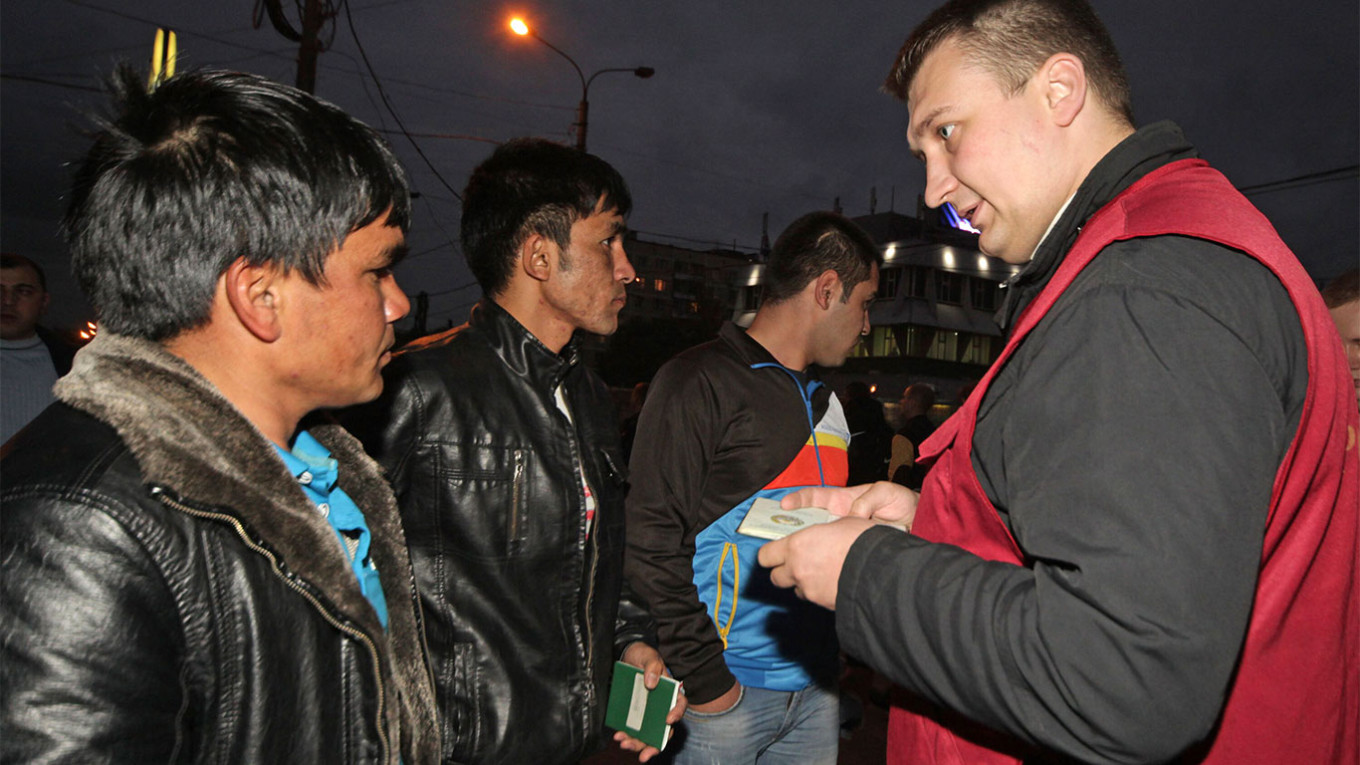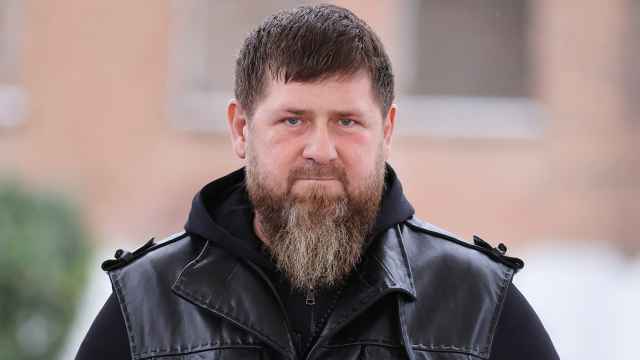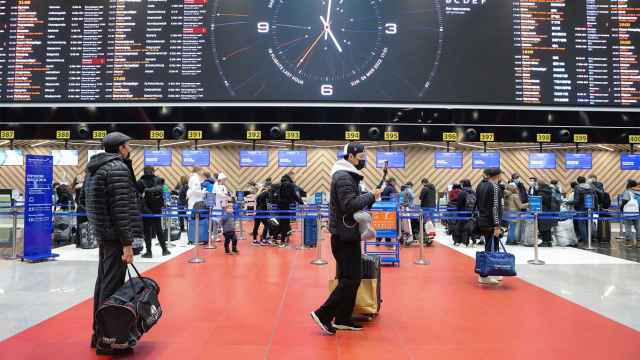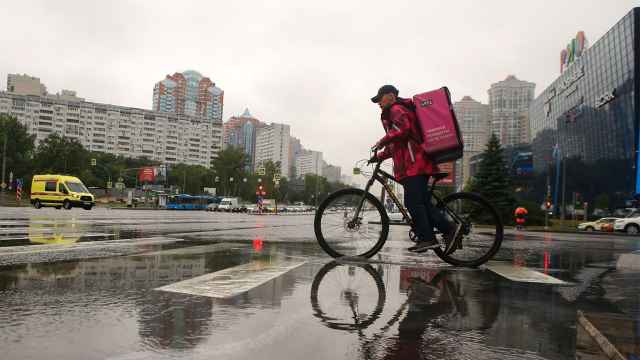“Because I am not Russian, hatred was directed at me even before the Crocus City Hall [attack], but now, they especially hate the migrants,” said a taxi driver who came to Moscow from his native Osh, Kyrgyzstan’s second-largest city, some four years ago in search of stable work.
“[The assailants] happened to be Tajiks and Russians cannot differentiate between Tajiks and Kyrgyz. We all have the same face to them,” he added, requesting anonymity due to safety concerns. “I’m scared...I don’t work at night anymore.”
The taxi driver who spoke with The Moscow Times is one of about 3 million migrant workers currently residing in Russia. Most of them hail from Central Asia’s Uzbekistan, Kyrgyzstan and Tajikistan, whose economies rely on remittances from these workers.
In the wake of last week’s deadly attack on the Crocus City Hall concert venue in Moscow’s suburb of Krasnogorsk, life for many of these migrants — who already faced growing pressure from Russian police and military recruiters — appears to have taken a turn for the worse.
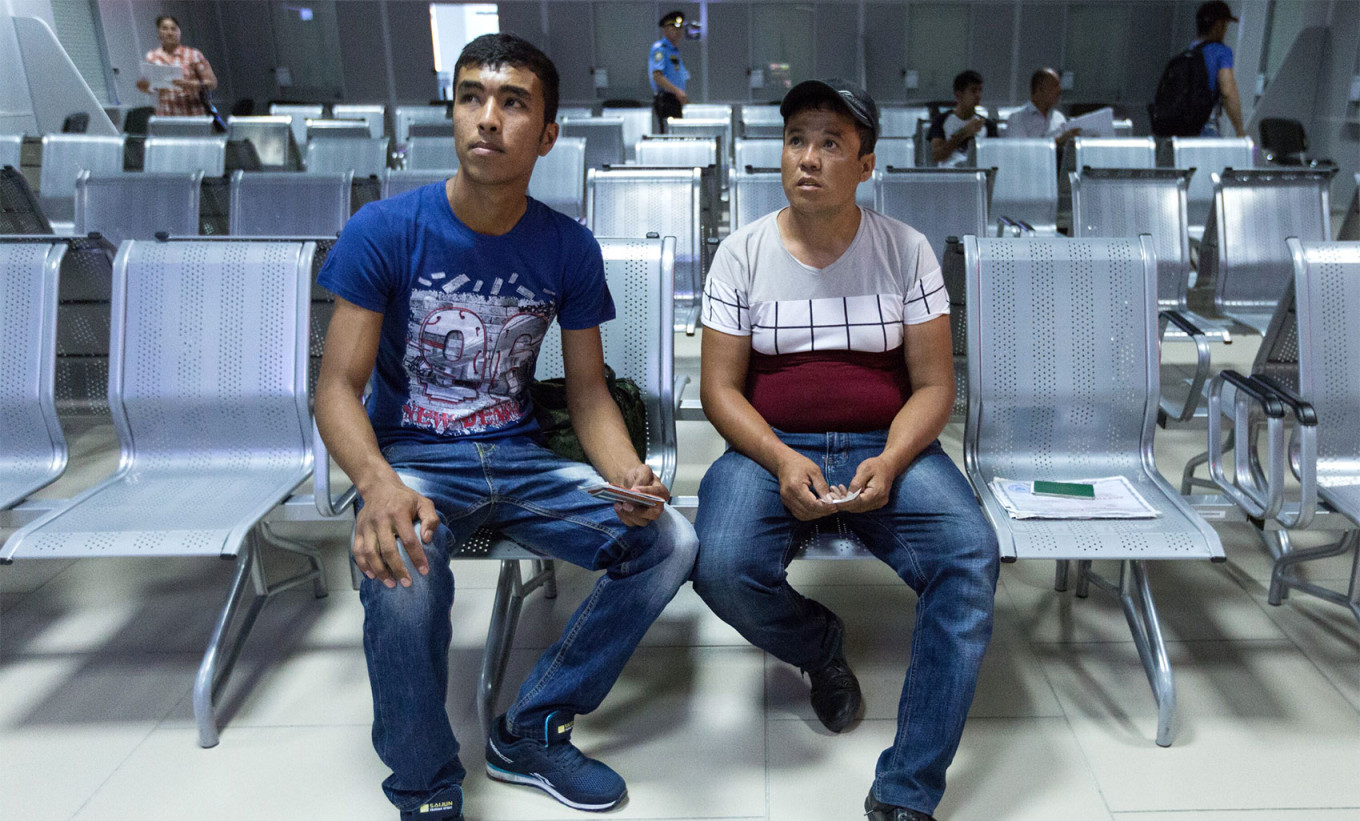
Russian security forces said they have arrested 11 people in connection with the attack claimed by ISIS-K, a branch of the Islamic State jihadist group active in South-Central Asia. All four suspected shooters were reported to be citizens of Tajikistan.
Shortly after the information of the assailants’ identity surfaced in the media, news of security services conducting sweeping raids on migrant communities across the country emerged alongside reports of isolated xenophobic attacks on Tajik migrant workers.
“We know that labor migrants are feeling tense. Children of refugees and migrants told us that they are scared to [leave the house] to go to school,” a spokesperson for the Civic Assistance Committee, an NGO that assists refugees and migrants in Russia, told The Moscow Times.
In Moscow, police have established special units to carry out document checks at hostels frequented by migrants and on major motorways in the capital, the Baza Telegram channel, which is affiliated with the security forces, reported Sunday.
On Wednesday, Russian police and the National Guard (Rosgvardia) raided a Moscow region warehouse belonging to online retail giant Wildberries. At least 5,000 male migrants were subjected to document checks and some were taken to military enlistment offices, the Telegram channel Mash reported.
Police raids targeting migrants have also been reported in major Russian cities including Volgograd, Yekaterinburg, Tula, Vladivostok and Ulyanovsk.
Human rights lawyer Valentina Chupik, who offers free legal help to migrants in Russia, said she received more than 3,200 requests for assistance in the first 72 hours following the attack.
A large number of cases she handled were from migrants wrongfully accused of committing administrative offenses or illegally deported from Russia. More than 1,500 requests came from people detained by the police during the raids.
“There are 118 people who were beaten by the police and more than 400 people who were subjected to torturous conditions [while in detention]: held outside for many hours or in cells together with so many people that they couldn’t sit down even on the floor,” Chupik told The Moscow Times. “[They had] no food, no water and no access to the toilet.”
In addition to the raids — which, according to Russian authorities, are aimed at detecting “illegal migrants” — officials have moved to expand legal restrictions on foreign workers.
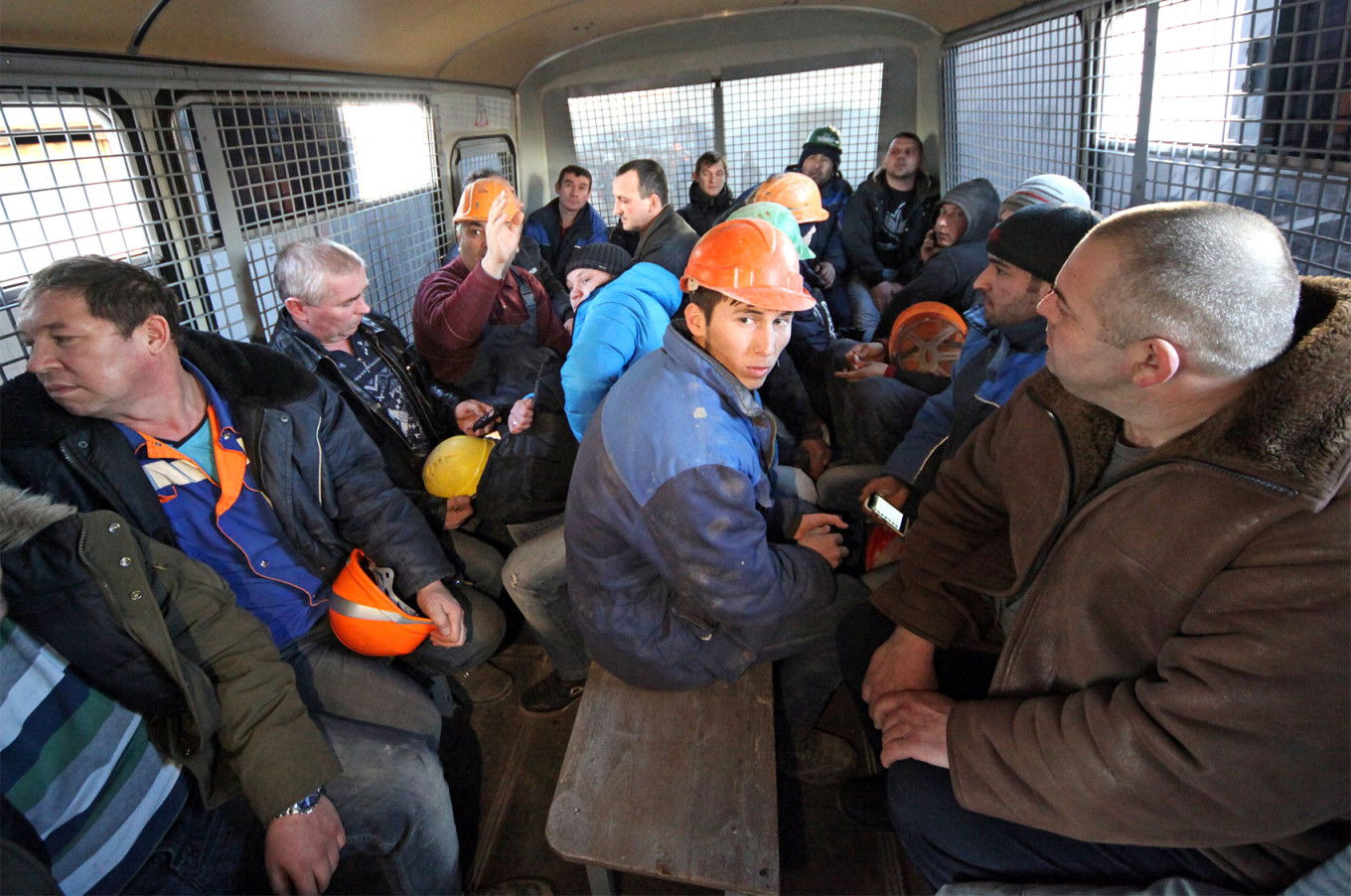
Russia’s Labor Ministry on Tuesday proposed to administer all migrant workers’ employment through a single state-controlled entity and fix the maximum term of their employment contracts at two years.
In the northwestern Novgorod region, authorities banned most migrant workers — except for those hailing from Eurasian Economic Union member states — from working as taxi and public transport drivers.
“If both local and federal governments think that this will calm people down, then they will start adopting — mostly chaotic — measures to show that they are also worried about the ‘migrant threat,’ as they call it,” said Alexander Verkhovsky, the head of the SOVA Research Center, the country’s leading think tank documenting and advocating against nationalism, xenophobia and racism.
In an effort to remain in step with the public mood, many Russian officials also didn’t shy away from making anti-migrant statements.
Mikhail Sheremet, a State Duma deputy from annexed Crimea, proposed to “limit entry for migrants” for the entire duration of the war in Ukraine.
“Foreigners who cross the border are a threat, first of all, to themselves, because they…become an object of interest for Western intelligence agencies [who hope to use them to] carry out terrorist acts,” Sheremet told state media on Sunday.
“This is not unprecedented, of course. All large terrorist attacks [in Russia’s history]…led to a surge of xenophobia,” said Verkhovsky of SOVA. “In some sense, this cannot be avoided. The real question is: Will this lead to consequences more serious than just words? This is still unclear.”
For most migrants, however, worsened xenophobic harassment and possible violent attacks pose a more immediate concern.
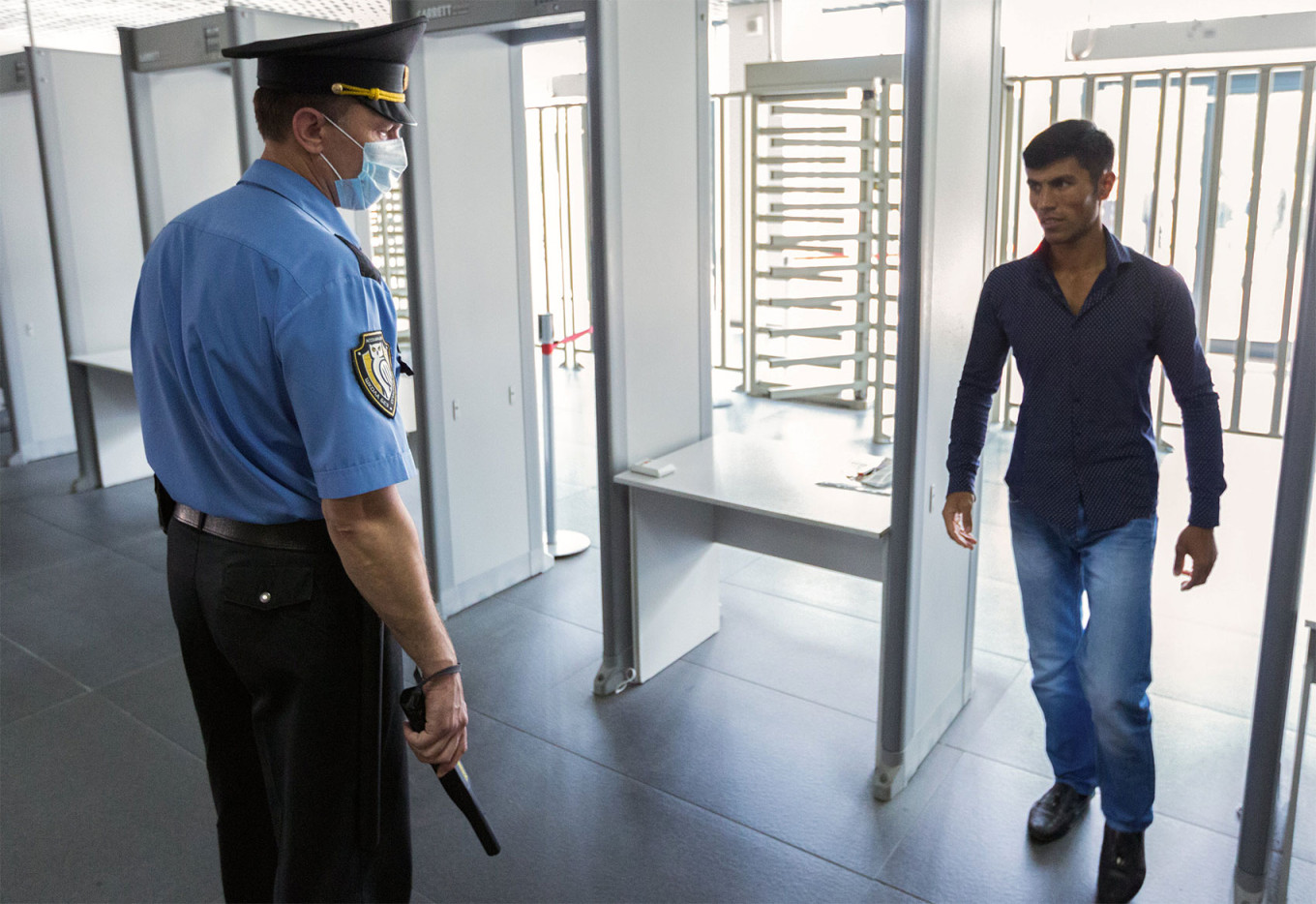
Though several media reports of Russians refusing the services of ethnic Tajiks have emerged in the days since the Crocus City Hall attack, Verkhovsky of SOVA said it is too early to claim that the attack has led to a noticeable spike of xenophobic incidents, which are already commonplace in Russia.
“The number of attacks started to grow noticeably since last spring,” Verkhovsky told The Moscow Times.
Many perpetrators of racially motivated crimes in Russia are linked to criminal gangs consisting mostly of teenagers who mimic the racist skinhead groups that were active in Russia in the early 2000s, both in their tactics and looks, according to Verkhovsky.
“They have their own vision of how the object of violence should look, so I am not even sure if they will react [to the recent events],” said Verkhovsky. “But we will find this out soon. Our monitoring will show whether there was a surge in violence or not and which groups were targeted.”
Not all members of Russia’s Central Asian diaspora communities feel the same concern over possible discrimination.
“I am not worried about my safety and the safety of the diaspora because I don’t feel any pressure from the security services,” said Makhsudsho Muborakshoev, a Tajik activist and volunteer with the NUR, a union of the small peoples of Tajikistan’s Pamir Mountains in Moscow.
In the wake of the Crocus City Hall attack, NUR volunteers provided food and beverages for people who waited in hours-long lines near Moscow’s Gavrilov Blood Donation Center to donate blood for the wounded.
“We have heard about all this fake news that Tajik citizens are being subjected to checks, but as the police workers themselves say it is a routine security check of identity papers after what happened in Crocus City Hall,” Muborakshoev told The Moscow Times.
“We continue with our activities. There have been no talks about leaving Russia,” he added.
Yet Tajikistan’s Embassy in Moscow on Saturday urged its citizens in the country to avoid crowded places due to safety concerns.
And the Kyrgyzstan foreign ministry on Monday moved to caution its citizens against making unnecessary trips to Russia.
“Of course, we will see less people coming to Russia as migrant workers,” said Temur Umarov, an analyst at the Carnegie Endowment for International Peace.
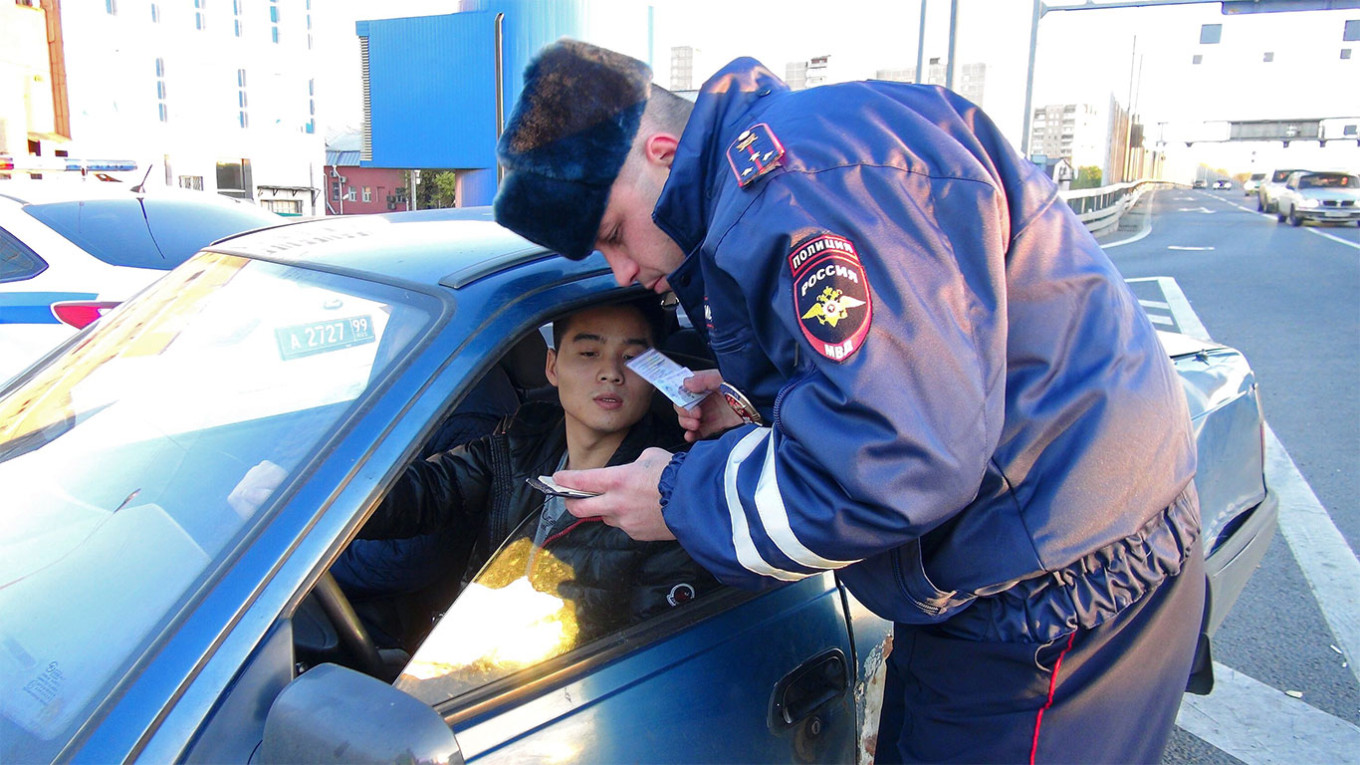
Though Russia’s economy still heavily depends on migrant labor, the inflow of Central Asian migrants to Russia has been decreasing amid the Kremlin’s invasion of Ukraine. Now, the additional legal obstacles and xenophobia on both societal and official levels could deter even more workers from coming to the country.
“But it must be understood that for most migrant workers [coming to] Russia is the only way to make money…High unemployment in their own countries and lower salaries means they are not able to feed themselves, let alone their families,” Umarov told The Moscow Times.
“For now the situation seems under control, we don’t see mass pogroms like the one in Makhachkala Airport,” said Umarov, referring to the anti-Israeli mob at an airport in Russia’s North Caucasus in October 2023.
“But I think all Central Asian states are — at the very least — thinking of how to deal with radical extremism [at home] and with Russia in the future.”
A Message from The Moscow Times:
Dear readers,
We are facing unprecedented challenges. Russia's Prosecutor General's Office has designated The Moscow Times as an "undesirable" organization, criminalizing our work and putting our staff at risk of prosecution. This follows our earlier unjust labeling as a "foreign agent."
These actions are direct attempts to silence independent journalism in Russia. The authorities claim our work "discredits the decisions of the Russian leadership." We see things differently: we strive to provide accurate, unbiased reporting on Russia.
We, the journalists of The Moscow Times, refuse to be silenced. But to continue our work, we need your help.
Your support, no matter how small, makes a world of difference. If you can, please support us monthly starting from just $2. It's quick to set up, and every contribution makes a significant impact.
By supporting The Moscow Times, you're defending open, independent journalism in the face of repression. Thank you for standing with us.
Remind me later.




